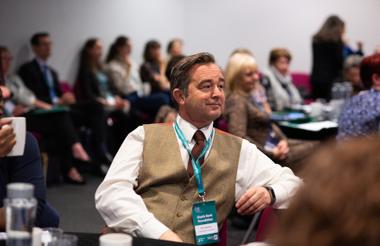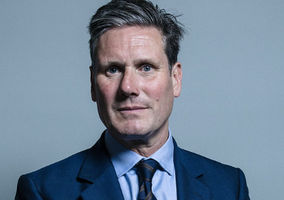Recently, I heard from one of the charities we fund in the East Midlands that they had lost their main source of funding for an addiction service they had delivered for years.
They have a wealth of experience, local knowledge and relationships, yet the charity lost out to a larger, national provider, not based in the area. The national provider won the contract presumably based on costs. This is something I have heard countless times before.
There are significant pressures on local authority, health, and other public sector budgets and many are struggling to balance the books with some having to file section 114 notices. Alongside the pressure on budgets, local authorities are faced with a need to provide an essential service to a larger number of people who are facing increasingly more complex or layered issues brought on by multiple and enduring crises.
Person-centred support
I often see cases where several smaller specialist contracts are merged into single larger contracts, usually leading to a more generic service that doesn’t meet the complex needs that too many people face. The only way to deliver these is by “efficiency” savings. In other words, systemised support, telephone helplines, online advice, and signposting. Not the in-depth, person-centred support smaller charities often give – taking people to their DWP interview, working through immigration forms, simply sitting down and talking with someone because they need to speak to someone who cares.
Many of the commissioning processes I hear about are complex, with mountains of paperwork, and short timeframes for completing applications. Larger organisations have the resources to hire teams dedicated to bidding on these types of contracts. Not the small local organisation who are at capacity already, everyone involved in delivery and no one to complete the required paperwork for commissioners.
There are two common outcomes to larger national organisations winning local contracts. One is where the small charity closes, leaving no services when the larger charity inevitably ends the contact.
The other is where the large charity subcontracts to a local charity to deliver the same service at a fraction of the cost they received before or that of the winning contract. Either way, the people who rely on these public services lose out.
Partnerships
While the whole commissioning process has been designed in a way that disadvantages small charities, it can be improved through more collaborative working.
As funding for public services has declined over the years, competition has increased and we have lost a good deal of trust, and many smaller organisations have had bad experiences of partnership working.
But we’ve also seen good examples of partnership working, including joint working on the bidding process itself or larger charities investing in developing smaller charities’ resources during the delivery of contracts.
Many of these examples are shared in Rebalancing the relationship, a report Lloyd’s Bank Foundation worked on alongside NCVO and ACEVO to highlight good practices and encourage others to embrace a fairer and better way of working.
Talk to each other
Commissioners have some work to do too. The first question to ask is whether commissioning is the most effective tool.
Guidance from the National Audit Office says that grants are perfectly permissible. The commissioning framework itself can be improved by giving plenty of notice and long timescales for any opening contract and ensuring the process is proportional to the contract size.
Not only that, but building in co-design and making it meaningful, when people have taken the time to engage, shows them how your ideas have evolved because of it. Too often I see consultation being done and not considered in the end result.
Embed social value in considerations and the economic and added value of delivering services locally with local suppliers and take note of amendments in the relevant legislation to make working with small organisation easier.
Commissioners need to get out there and talk to the organisations providing good services in your area.
My one ask of the sector and commissioners is to simply talk to one another, and really listen. Look to favour smaller local organisations, value the additionality that local organisations bring and accept that they may need a little more support. You will find the relationships you develop with local organisations will make the job far more rewarding. And after all, we thrive on relationships.
Gary Beharrell is a regional manager at Lloyds Bank Foundation
Related Articles












